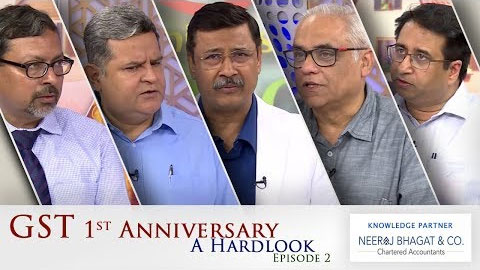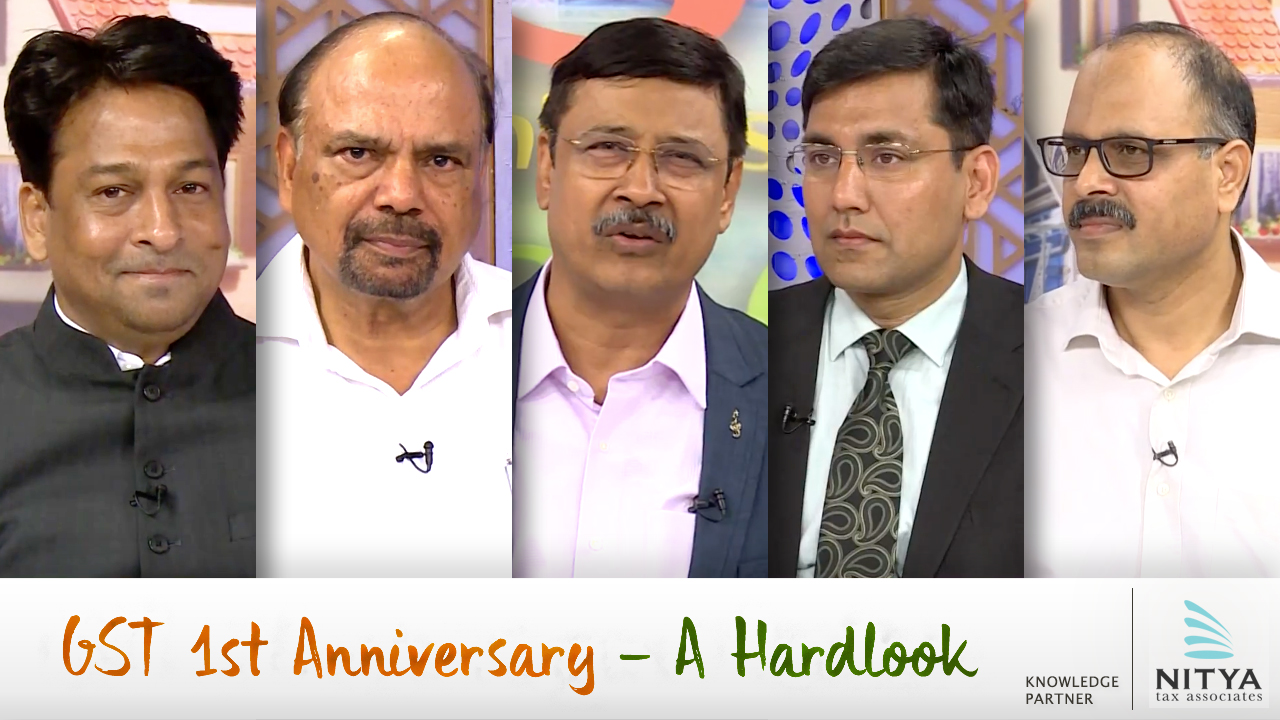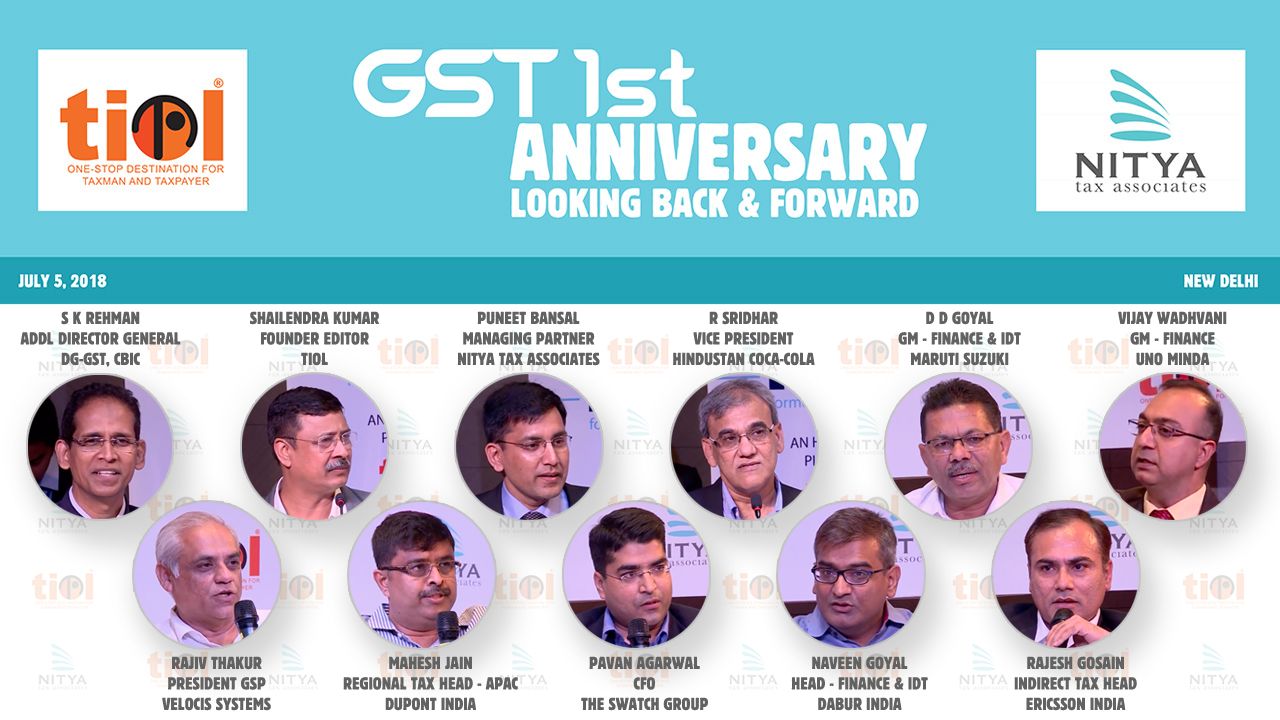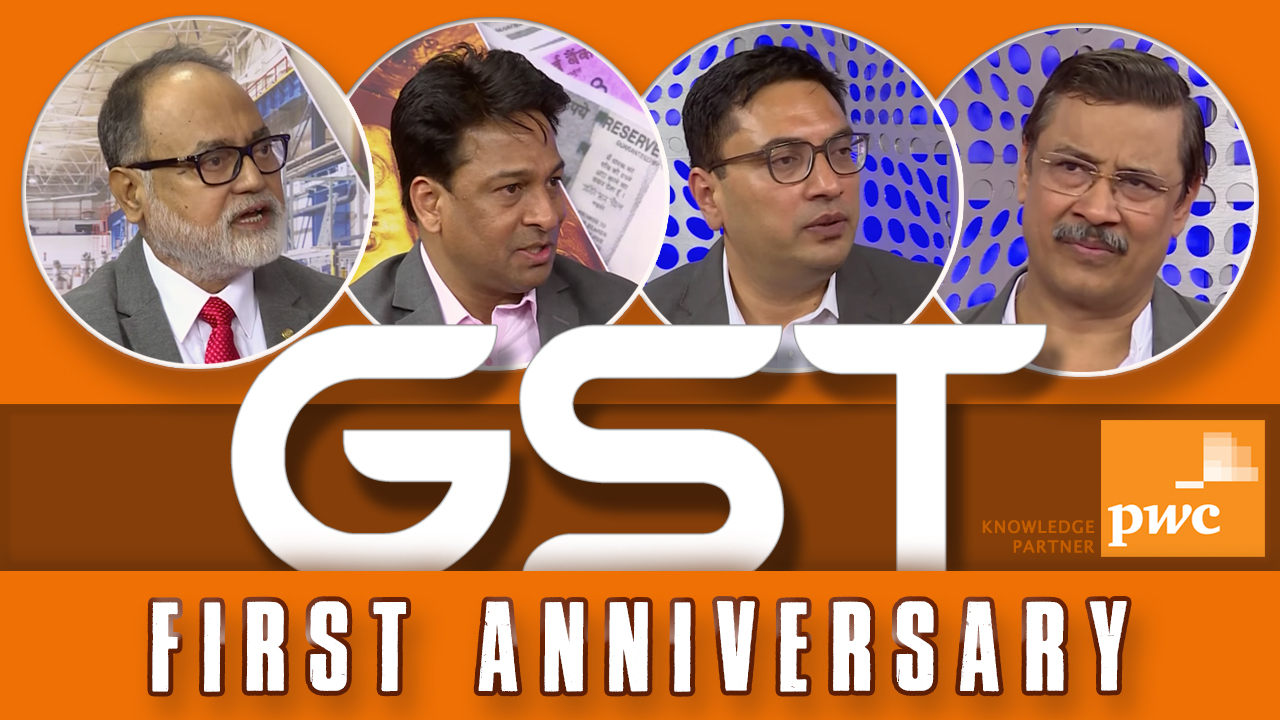 |
 |
2018-TIOL-NEWS-167 Part 2 | Tuesday July 17, 2018
|
 |
 |
Dear Member,
Sending following links. Warm Regards,
TIOL Content Team
TIOL PRIVATE LIMITED.
For assistance please call us at +91-7838594749 or email us at helpdesk@tiol.in. |
 |
|
 |
 |
 |
TIOL TUBE VIDEO |
 |
|
 |
DIRECT TAX |
 |
|
 |
 |
 |
 |
 |
 |
 |
|
2018-TIOL-269-SC-IT
Virag Tiwari Vs PR CIT
In writ , the Apex Court was of the view that, - Notice Issued: SUPREME COURT OF INDIA
2018-TIOL-268-SC-IT
DCIT Vs Ahmedabad Urban Development Authority
In writ, the Apex Court was of the view that, - Case Deferred: SUPREME COURT OF INDIA
2018-TIOL-267-SC-IT
Pr.CIT Vs Instrumentation Ltd
Having heard the parties, the Apex Court condoned the delay and directed to issue notice to the parties. - Notice issued: SUPREME COURT OF INDIA
2018-TIOL-1375-HC-MAD-IT
CIT Vs Elgi Tread India Ltd
Whether re-opening of assessment after four years of relevant AY, without recording reasons to believe that taxable income escaped assessment or that assessee failed to disclose material facts, is unsustainable - YES: HC - Revenue's Appeal Dismissed: MADRAS HIGH COURT
2018-TIOL-1354-HC-KAR-IT
PR CIT Vs Nvidia Graphics Pvt Ltd
Whether expenses excluded from export turnover have to be excluded from total turnover as well, for purposes of arriving at eligible deduction u/s 10A - YES: HC - Revenue's appeal dismissed: KARNATAKA HIGH COURT
2018-TIOL-1353-HC-MUM-IT
PR CIT Vs Quest Investment Advisors Pvt Ltd
Whether accounting principles followed consistently over years, need not be disturbed without pointing out any distinguishing features in facts in present year - YES: HC - Revenue's appeal dismissed: BOMBAY HIGH COURT
2018-TIOL-1352-HC-AHM-IT
Sandeep Raghunath Gupta Vs DCIT
Whether excess cash & jewellery seized by the Tax Department should not be retained, after adjustment of outstanding demand payable from the taxpayer - YES: HC - Case disposed of: GUJARAT HIGH COURT
2018-TIOL-1084-ITAT-HYD M Uday Sree Vs ITO
Whether additions can be made on the basis of a statement of a third party without the same being tested by way of cross-examination - NO: ITAT - Assessee's appeal allowed: HYDERABAD ITAT
|
|
 |
   |
 |
|
 |
 |
INDIRECT TAX |
 |
|
 |
 |
 |
 |
 |
 |
 |
|
SERVICE TAX
2018-TIOL-2177-CESTAT-DEL Candid Security Services Vs CCE & ST
ST - The assessee is a security service agency providing security services under two Commissionerate of Raipur and Bhopal, where they are separately registered - The issue in this appeal is whether impugned adjudication order passed by Commissioner, Raipur which also determines liability for their office at Nowrozabad within Bhopal jurisdiction, whether the demand to that extent is without jurisdiction, whether assessee is entitled to cum tax benefit, whether assessee is entitled to adjustment of taxable value on receipt basis, as the demand pertains to the period prior to 01/04/2011 and further if penalty is rightly imposed under Sections 76, 77 and 78 as well as late filing fee for returns under Rule 7C of Service Tax Rules, 1994 - So far the demand raised in impugned order relating to Bhopal Commissionerate, of the Amlai office of assessee in respect of services in state of M.P. is concerned, said demand hit for jurisdiction, and accordingly set aside - As regards the claim for cum-tax benefit, the gross amount taken by Revenue for raising the demand, the element of services tax was included and accordingly assessee is entitled to cum-tax benefit for calculation of service tax liability - So far the claim of assessee is concerned, as regards reworking of taxable value on the receipt basis, matter remanded to the Original Adjudicating Authority for recalculation of demand on receipt basis with respect to services provided under Raipur Commissionerate - As regards the penalties imposed, there is no case for deliberate default on the part of assessee as they have disclosed their turnover and liability towards service tax in their balance-sheet - On query from the bench as to why the returns for about two years were in arrears and not filed, assessee have explained that the website of Department – ACES, does not accept filing of the return unless the service tax payable as per return have been deposited - There is no case by Revenue that there has been diversion of funds from the business of assessee for non-business use Accordingly there is reasonable cause for default and as such penalty under Section 78 as well as under Section 76 of Finance Act set aside - So far the other penalties are concerned under Section 77 and under Rule 7C of Service Tax Rules, these are set aside and remanded to Adjudicating Authority for reconsideration upon redetermination of liability in accordance with law - Demand for extended period is chargeable as penalty is set aside only on the ground of their being genuine reason for non-payment of service tax demand: CESTAT - Appeal partly allowed: DELHI CESTAT
2018-TIOL-2176-CESTAT-BANG
B Nagaraj Vs CCT
ST - Assessees was awarded contract for felling, collection, conversion, debarking, stacking, extraction, transportation and delivery of trees from M/s. Mysore Paper Mills Ltd., captive plantation as per the tender Notification - The assessee had received an amount for providing said services to M/s. Mysore Paper Mills Ltd. and obtained service tax registration under said category - Said amount was received on extraction and transportation charges which was not reflected in returns filed by them - On these allegations, a SCN was issued - Demand confirmed alongwith interest and penalties - Assessee has only challenged the various penalties imposed on him under various provisions of FA, 1994 - Further, assessee has paid the tax along with interest - Adjudicating authority passed the O-I-O on the direction of Tribunal whereby the Tribunal has set aside the demand by invoking extended period and directed the original authority to limit the demand only to the normal period - Commissioner (A) in similarly placed other assessees covered by same Final Order has set aside the penalties imposed under Sections 76, 77 and 78 of FA, 1994 - By following the order of Commissioner (A) in de novo proceedings, Assistant Commissioner vide order dated 28.3.2018 has also dropped the penalties - In view of these findings by original authority as well as by the Commissioner (A), penalties imposed on assessee under various provisions of Finance Act is not sustainable in law and therefore, same is set aside: CESTAT - Appeal allowed: BANGALORE CESTAT
2018-TIOL-2175-CESTAT-BANG
CCE Vs B Nagesh Hegde
ST - Assessee is rendering services under category of renting of immovable property services - On getting information that assessee is not paying service tax on renting of immovable property and has not obtained registration and has not been filing ST-3 returns, a SCN was issued to assessee demanding service tax under proviso to Section 73(1) of FA, 1994 along with interest and also proposed penalties under Section 77, 78 of FA, 1994 - Assessee has failed to disclose that they are liable to pay service tax, as service tax was imposed on renting of immovable property from the year 2006 onwards - Further, they have not filed the ST-3 returns also, therefore, reasoning given by original authority invoking the extended period is justified - The finding by original authority that security deposit is also to be included in gross value of taxable service is not tenable in view of Division Bench judgment in case of Samir Rajendra Shah 2014-TIOL-2202-CESTAT-MUM - Further, the fact that Stylus Animation College and Lakshmi Memorial Educational Trust fall in category of 'Educational Institution' or not, the original authority has not given the finding based on any evidence and the assessee says that they have sufficient evidence to prove that both these institutions fall in definition of 'Educational Institution' - Matter is remanded back to original authority to decide whether these institutions fall in the definition of 'Educational Institutions' after considering the documents which may be produced by the assessee: CESTAT - Matter remanded: BANGALORE CESTAT
CENTRAL EXCISE
2018-TIOL-270-SC-IT
CCE Vs Rajasthan State Beverages Corporation Ltd
CX - the assessee-company is a state government engaged in purchase of IMFL and Beer from manufacturers - It is also engaged in transport of liquor to its various depots & for further sale thereon to various licensees - With a view to regulate supply of liquor through conferring exclusive privilege of purchase and sale in wholesale thereof upon assessee - As a consequence of monopoly assumed by State Government in this area & confirming of privilege on assessee, it is mandatory for all manufacturers, distilleries & suppliers to sell liquor in State only through canalising agency, namely the assessee - However, the assessee is not registered as a service tax provider & did not file returns of service tax & also did not remit service tax - An SCN was issued alleging that assessee had provided Business Auxiliary Service & willfully suppressed information with intent to evade payment of service tax - Issue is squarely covered by decision of Chattishgarh High Court in M/s. Chattisgarh Estate Beverages Corporation wherein it has been observed that, if the Corporation was engaged in sale and purchase of liquor for the State, then no service tax was payable - Considering the said judgment, the issue is answered in favour of assessee - Hence the Department's appeal.
Held - Delay condoned - Special Leave Petition is dismissed: SC - SLP Dismissed: SUPREME COURT OF INDIA
2018-TIOL-2196-CESTAT-MAD
Madura Coats Pvt Ltd Vs CCE
CX- The assessee-company is engaged in the manufacture of coated fusible interlining fabrics of cotton - Initially, it classified the subject goods under the category of CETH 5903 on insertion of Note 2(c) - Subsequently, the note was omitted w.e.f 1995, leading the assessee to seek re-classification under CETH 5207 - The Revenue took a view that Board's Circular No.24/Coated Fabrics/88-CX.1 & Circular No. 5/89 clarified that the goods were to be classified under CETH 59.03 only - Thereafter, in consonance with the circular the Revenue took a view that the goods are required to be classified only under CETH 5903 - A SCN was issued demanding differential duty - The lower authorities confirmed the demand, however, the Commr. (A) remanded the matter for re-testing of the materials on the basis of samples available - On appeal the Tribunal upheld the remand order & directed to consider the Board's circular - In this report each of the samples received indicated that the samples of fusible interlining fabrics have characteristics which would fall within the exclusions (i) to (v) of Chapter Note 2 (a) to CETH 59.03 - In addition, the tested fabric did not satisfy the requirement of 'impervious ‛ as clarified in Board's circular - Despite the clear findings of the test report, the Commr. (A) upheld the classification under CETH 5903 and not under CETA 52 - Hence, even based on the output of the retest conducted by the CRCL it was clear that the fabric would fall outside the scope of classifiability under CETA 5903 - Meanwhile, the industry expressed certain doubts on classification wherein Board's circular was struck down by the Madras HC in 2004 (163) ELT 164 (Mad.) - Hence, the present appeal by the assessee - Held - When the Tribunal disposed off the appeal and directed for re-testing the order was not challenged further by the Revenue - Consequently, it can be concluded that the order of CESTAT was accepted in toto by both the parties - Furthermore, the directions given by the Tribunal was not followed by the lower authorities during de novo adjudication - It is important to note that Note 2(c) to Chapter 5903 was added w.e.f 1.3.1989 and then amended w.e.f. 20.03.1990 and thereafter deleted w.e.f 16.3.1995 - In addition, for the goods to find classification under CETA 5903 three tests have to be met the product must have a continuous and adherent film or layer or plastic on one side of the fabric surface, the fabric should be impervious, must satisfy the conditions prescribed in Note 2 of Chapter 59 - Moreover, the Bombay Dyeing case will not be applicable as the g oods are out of scope of CETA 5903 - Therefore, when the Note 2(c) is no longer in existence & the subject goods do not meet the requirements of 'coated fabric' under CETA 5903 - Hence, the order challenged is set aside : CESTAT (Para 1, 4, 5) - Appeal Dismissed: MADRAS HIGH COURT
2018-TIOL-2180-CESTAT-DEL
Jindal Steel And Power Ltd Vs CCE
CX- The assessee is engaged in the manufacture of sponge iron, billets, rolled items - It availed Cenvat credit on inputs, capital goods and input services - For manufacturing & trading activity, the assessee borrowed from various Banks - In addition, it entered into an agreement with banking and financial services from overseas service provider - For consumption of such services it paid service tax under reverse charge - Besides, the assessee obtained registration as input service provider & allocated a portion of service tax to the assessee unit through HO - On audit, it was observed that assessee did not maintain separate record of input and input services used - The Revenue opined that only 50% of credit could be availed in a month, therefore the remaining 50% of the cenvat credit is liable to be reversed - A SCN was issued and amount of Cenvat plus interest & penalty amount was ordered to be reversed - Hence, the present appeal by assessee.
Held - Rule 6, clause 3B applies only to a Banking Company and a Financial Institution including a NBFC - To comprehend the applicability of the relevant Rule, it is important to see if the assessee falls under any of these categories - Section 65(11), (45) and (74) of FA states meaning of the terms 'Banking Company', 'Financial Institution' and 'Non Banking Financial Company' - It will have the meaning assigned to it as per the various Sections of the RBI Act, 1934 - A reading of various sections of RBI Act, it is evident that company, which accepts deposits from public for the purpose of lending or investment, will be considered as banking company - In view of the Explanation to Section 5(c) of the Banking Regulation Act, 1949, the assessee will not fall within the category of 'Banking Company' since they are primarily engaged in the manufacture of iron steel items - The assessee's principal business is not receiving deposits and lending money in any manner, thus, in terms of section 55(f) of RBI Act, it is not NBFC - Moreover, the assessee's activity being industrial, it falls under the exclusion category of financial institution definition under clause (f) of section 451 of RBI Act - It is a settled principle of law that a taxing statute has to be interpreted literally - Following this golden rule of interpretation & the analysis, it can be worked out that the provisions of Rule 6(3B) will not be applicable to the assessee - Hence, the order challenged is set aside : CESTAT (Para 1, 8, 9, 10, 11, 12) - Appeal allowed: DELHI CESTAT
2018-TIOL-2179-CESTAT-BANG
Kairali Steels And Alloys Pvt Ltd Vs CCT & CE
CX- The assessee are manufacturers of MS Ingots and TMT Bars - It availed Cenvat credit, however, it was observed by the Revenue that assessee traded some quantity of imported scrap, ingots, billets and local scrap purchased by them for the manufacture of MS ingots - The Revenue opined that assessee did not maintain separate accounts for input services used in the manufacture of final products and trading but availed CENAT credit of service tax paid on services related to entire quantity of inputs including the traded inputs - The assessee highlighted that prior to 2011, the "exempted services includes trading", regardless duty demand was raised - Further, there was non-compliance of Rule 6(3)(ii) r/w Rule 6(3A) which talks about reversal of Cenvat credit attributable to input services used for provision of exempted services.
Held - The assessee is a manufacturer and he has cleared some inputs by reversing the Cenvat credit taken by them originally on the said inputs- Therefore, activity is covered by Rule 3(5) of Cenvat Credit Rules - Thus, they are not required to follow the procedure as prescribed under Rule 6 - Moreover, clearances of some of the inputs as such does not amount to trading - Against the belief that assessee is a manufacturer, the Revenue could not establish that assessee is a trader, engaged in trading activities - In addition, the Tribunal in assessee's own case in Final Order No.20467/2018 allowed the appeal of assessee - Hence, the order challenged is set aside : CESTAT (Para 2, 5) - Appeal allowed: BANGALORE CESTAT
2018-TIOL-2178-CESTAT-MUM
CCE & ST Vs Bilt Graphics Paper Products Ltd
CX - Issue that falls for consideration is whether respondent is entitled for CENVAT credit of service tax paid on GTA service (used for transportation of coal to the power plant) and central excise duty paid on inputs and capital goods procured by respondent and supplied to M/s BPL for generation of power or otherwise.
Held: Power plant is within the factory premises of the respondent and the entire factory premises is shown as also of the respondent and power generated by the said power plant is consumed by respondent for manufacture of excisable goods and the power so generated is not wheeled out to the grid - If the definition of factory as mentioned in section 2(a) of the CEA, 1944 is considered then the appeal of Revenue does not have any legal standing as there is no dispute as the power plant and the factory premises of the appellant are one and the same - impugned order is correct and legal and does not suffer from any infirmity - Revenue appeal is rejected: CESTAT [para 8 to 10] - Appeal rejected: MUMBAI CESTAT
CUSTOMS
2018-TIOL-2181-CESTAT-DEL Soir International Vs CC
Cus - Assessee filed a claim for refund of SAD before the original authority - The refund claimed in terms of Notfn 102/2007-Cus. was sanctioned by Assistant Commissioner - A part of refund sanctioned was paid through RTGS whereas the balance amount was ordered to be recredited into FPS licence of assessee - The assessee had no grievance against such an order of original authority - The refund sanction order was received by assessee on 25.04.2016 but they initially did not file any appeal since the refund was already sanctioned - But, later he realised that he did not receive the portion of the refund which was ordered for recredit into the FPS licence - They approach DGFT authorities, following the letters sent by customs authorities to them for allowing such recredit - Finally, on 30.12.2016 with DGFT closing the file, it became clear that he is not getting any redressel of his grievance from DGFT but immediately after the closing of the case on the part of DGFT, appeal was filed before Commissioner (A) on 19.01.2017 - Time limit for purposes of Section 128 is to be reckoned from 30.12.2016 - From such date the appeal is filed within time - The time exhausted in pursuing the matter with DGFT should be excluded for the purpose of computation of limitation period, as per terms of Section 14 of Limitation Act, 1963: CESTAT - Matter remanded: DELHI CESTAT
|
|
|
 |
   |
 |
|
 |
 |
MISC CASE |
 |
|
|
 |
|
|
 |
|
 |
 |
TIOL PRIVATE LIMITED.
TIOL HOUSE, 490, Udyog Vihar, Phase - V,
Gurgaon, Haryana - 122001, INDIA
Board :
+91 124-6427300
Fax: + 91 124-6427310
Web: http: //www.taxindiaonline.com
Email: updates@tiol.in
__________________________________
CONFIDENTIALITY/PROPRIETARY NOTE.
The Document accompanying this electronic transmission contains information from TIOL PRIVATE LIMITED., which is confidential, proprietary or copyrighted and is intended solely for the use of the individual or entity named on this transmission. If you are not the intended recipient, you are notified that disclosing, copying, distributing or taking any action in reliance on the contents of this information is strictly prohibited. This prohibition includes, without limitation, displaying this transmission or any portion thereof, on any public bulletin board. If you are not the intended recipient of this document, please return this document to TIOL PRIVATE LIMITED. immediately |
 |
|
 |








